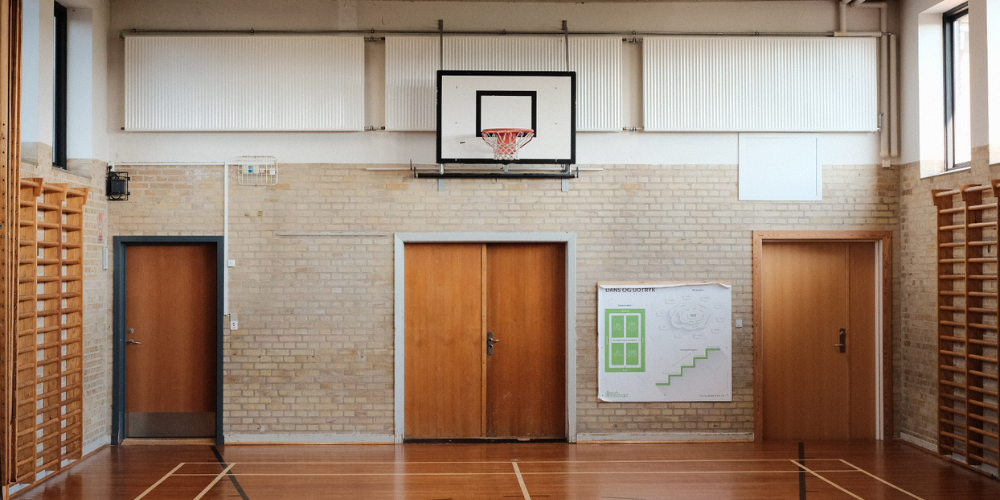- Mon - Thu: 8.00 - 16.00
- Fri: 8.00 - 15.00
- contact@hallmonitor.eu
- +45 93 95 93 88

Frederiksberg Municipality faces a familiar but often overlooked challenge: many of the municipality’s sports halls remain empty during school hours, despite being booked. This not only incurs costs but also wastes valuable square footage, energy, and potential for physical activity.
Danish Tal & Viden (Numbers & Knowledge) has reported on a study that highlights the issue: In his thesis at SDU, Mark Østergaard examined the sports facilities in Frederiksberg Municipality and found a discrepancy between bookings and actual attendance.
The problem – which is not unique to Frederiksberg – can be addressed with precise data and technology.
Mark Østergaard’s thesis reveals that many halls in Frederiksberg Municipality remain unused for a significant portion of the school day, even though they appear to be booked. While schools have booked between 75 and 100% of the capacity, the facilities remain unoccupied for around half of the school day.
According to the study, this is partly due to a lack of incentives to cancel bookings. Schools face no consequences if they do not show up, even if they have booked the facilities. Additionally, some school leaders were unaware that others could use the time slots if they cancelled.
The discrepancy between bookings and actual usage can be effectively addressed using technology. HallMonitor offers a data-driven system that measures and documents the actual use of sports facilities in real-time.
By installing sensors in the halls, objective and accurate overview of when the facilities are actually in use is created. This data provides municipalities, schools, and sports organisations with a solid basis for making decisions to optimise capacity – ensuring that the many resources behind sports facilities are used in the best possible way.
In collaboration with Frederiksberg Sports Union and Mark Østergaard, HallMonitor has already helped identify that some sports halls are almost fully utilised in the afternoon but often remain empty during the so-called “school hours”. This provides a clear indication that better use of the facilities is needed.
Optimising sports facilities is not just about efficient operations. It’s also about giving more people access to community, movement, and well-being. By ensuring that municipal halls are actively used during all opening hours, we simultaneously increase the value of existing facilities and promote a more sustainable use of public resources.
HallMonitor is a useful tool for understanding and optimising the use of sports facilities. By using data, we can ensure that Frederiksberg Municipality’s halls are not empty during school hours, and that resources are optimally utilised.
Read more about the study at Tal & Viden (Numbers & Knowledge) in Danish: Speciale forklarer, hvorfor idrætshaller på Frederiksberg står tomme i skoletiden
Understand how HallMonitor detects activity and optimises facilities – fully anonymously and in real time.
See how HallMonitor can support you and your facilities – from sports halls to parks.
Explore insights from municipalities and facilities already using HallMonitor in their daily operations.
Securely leave the collection of activity and booking data to HallMonitor – your reliable solution for analysis and optimisation of facility usage.
© Copyright HallMonitor ApS 2024